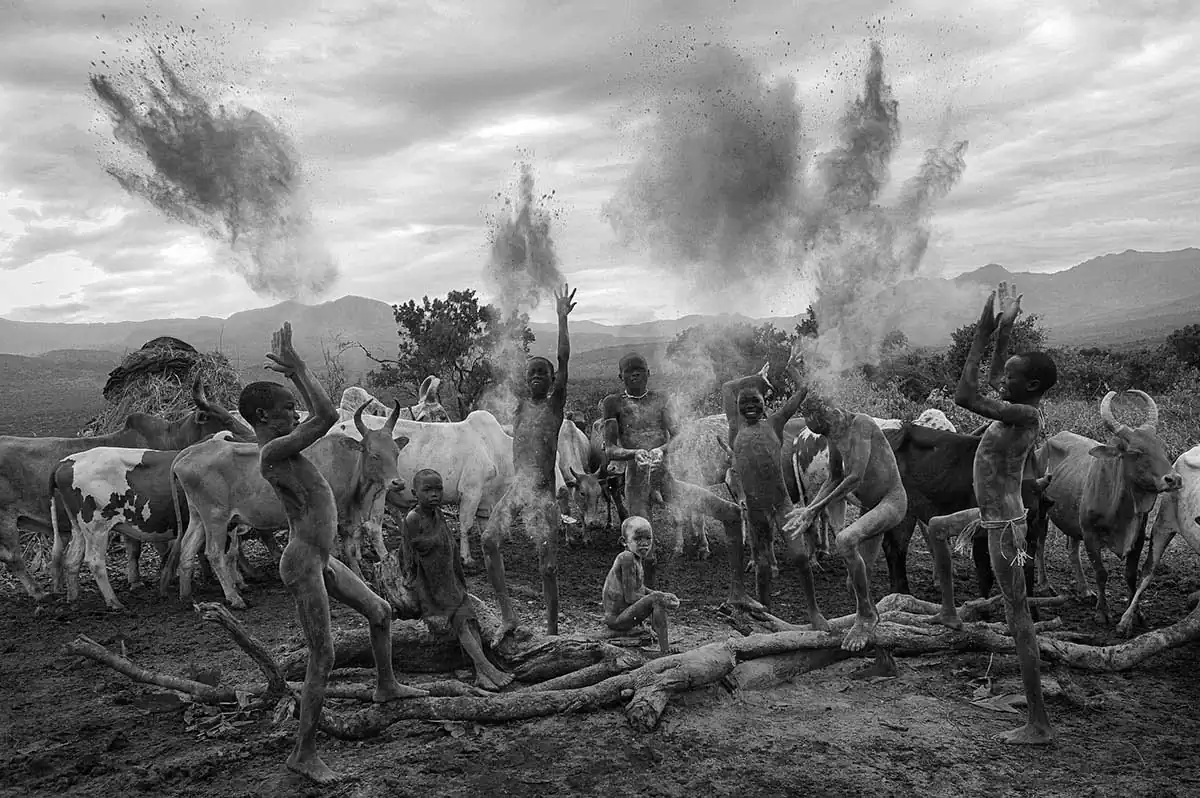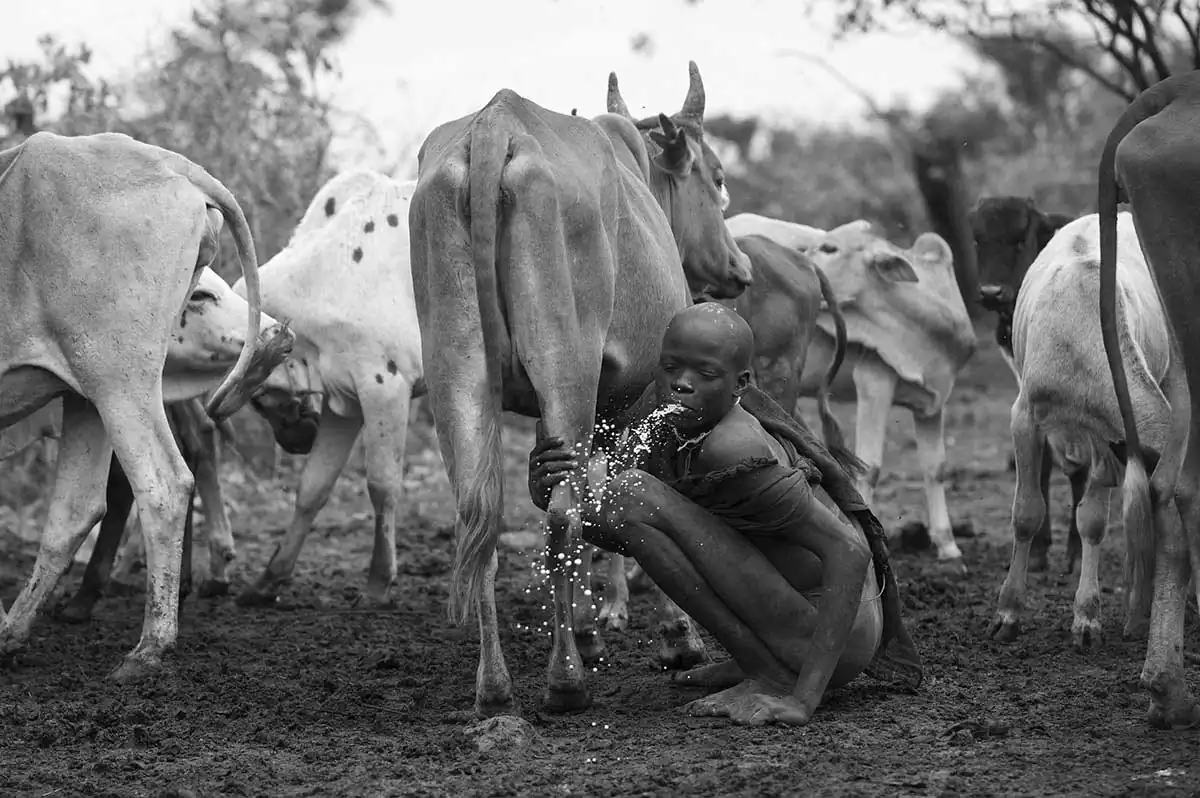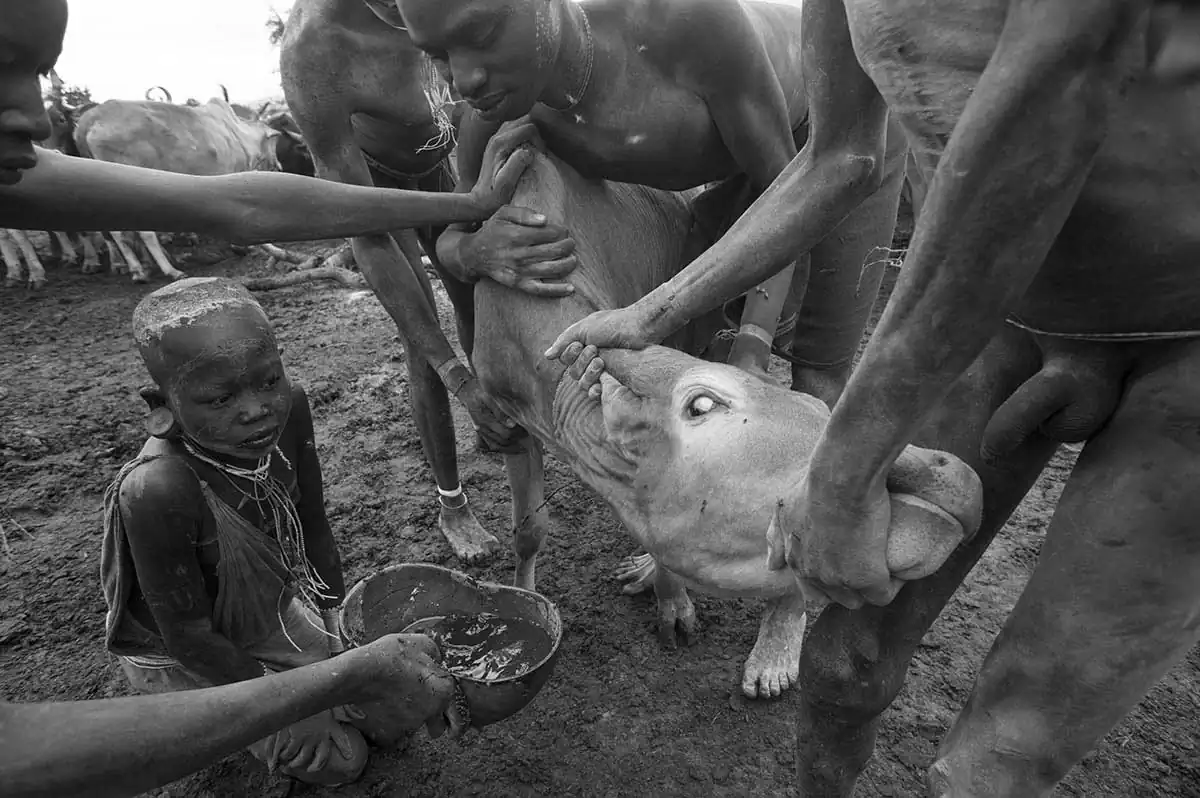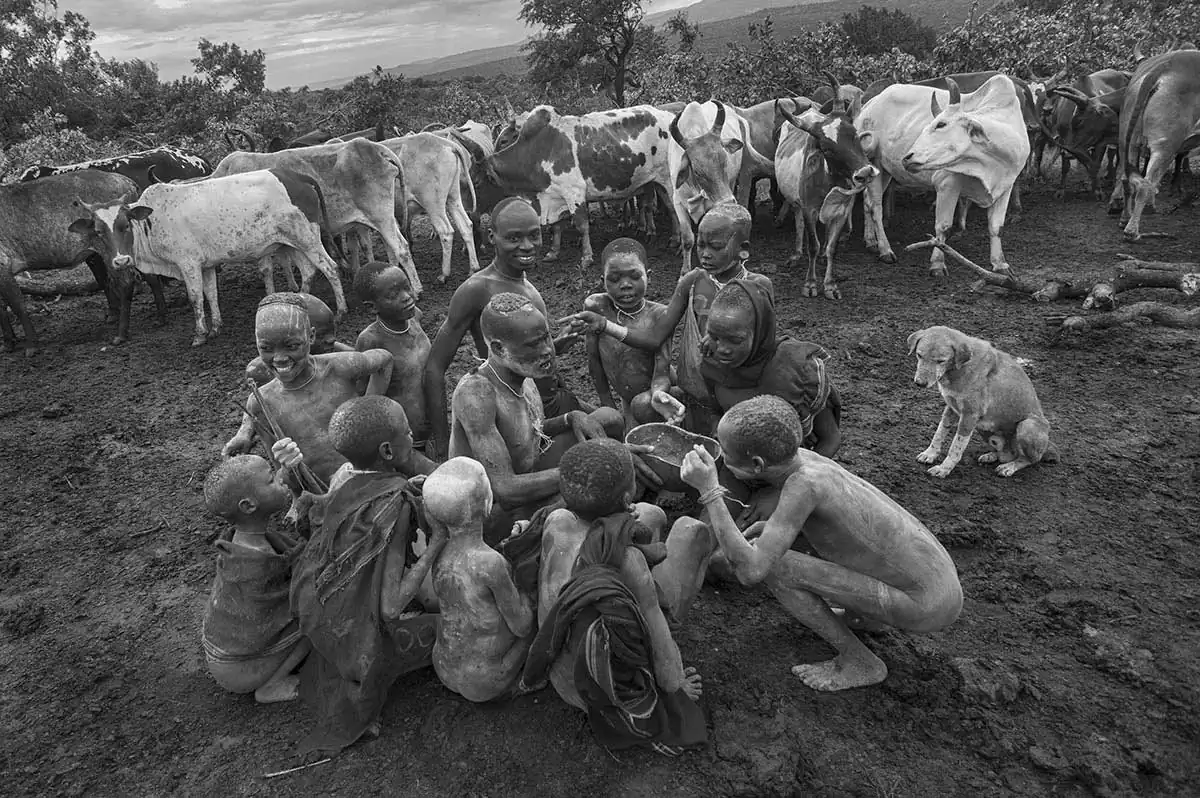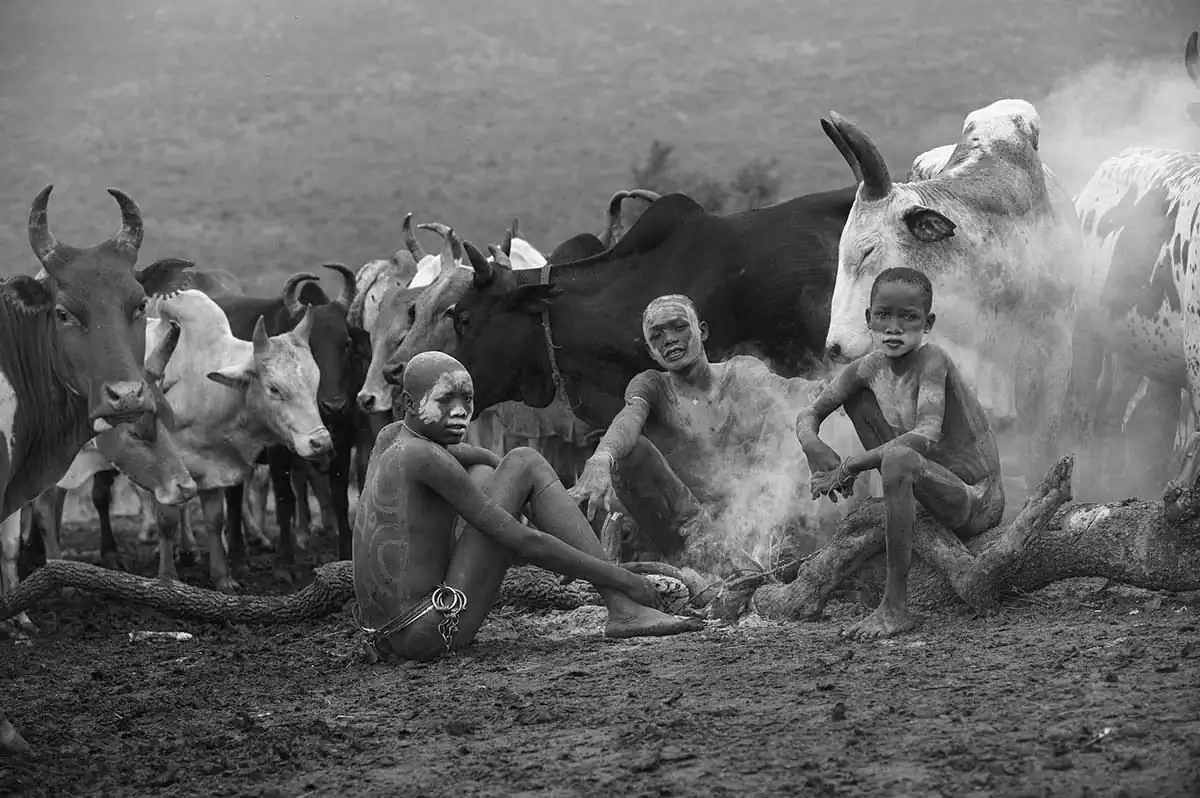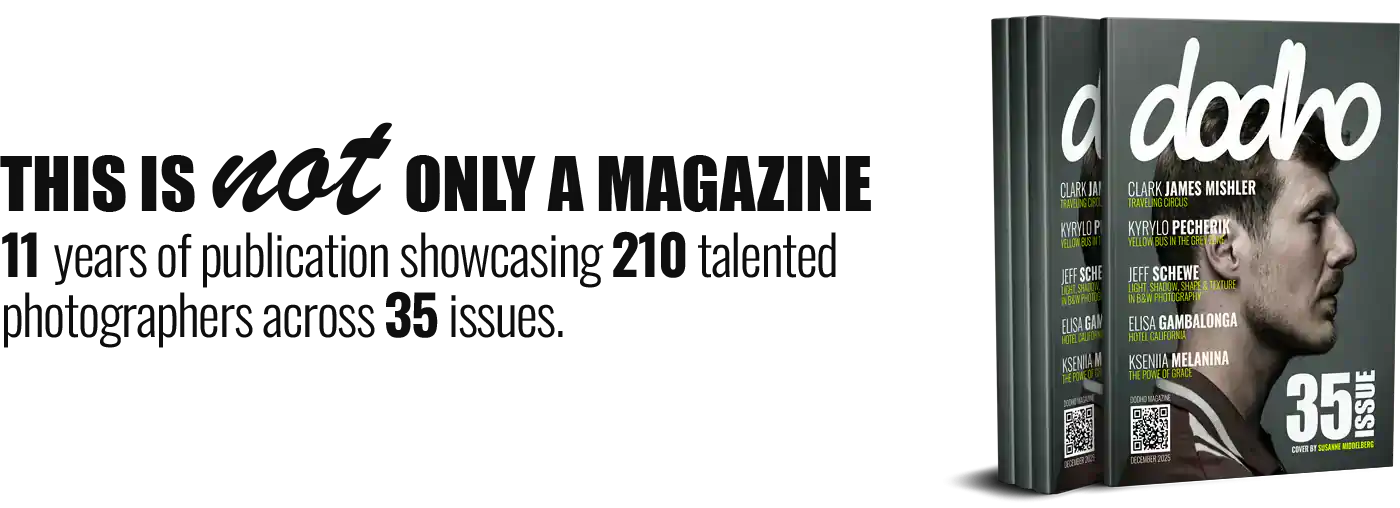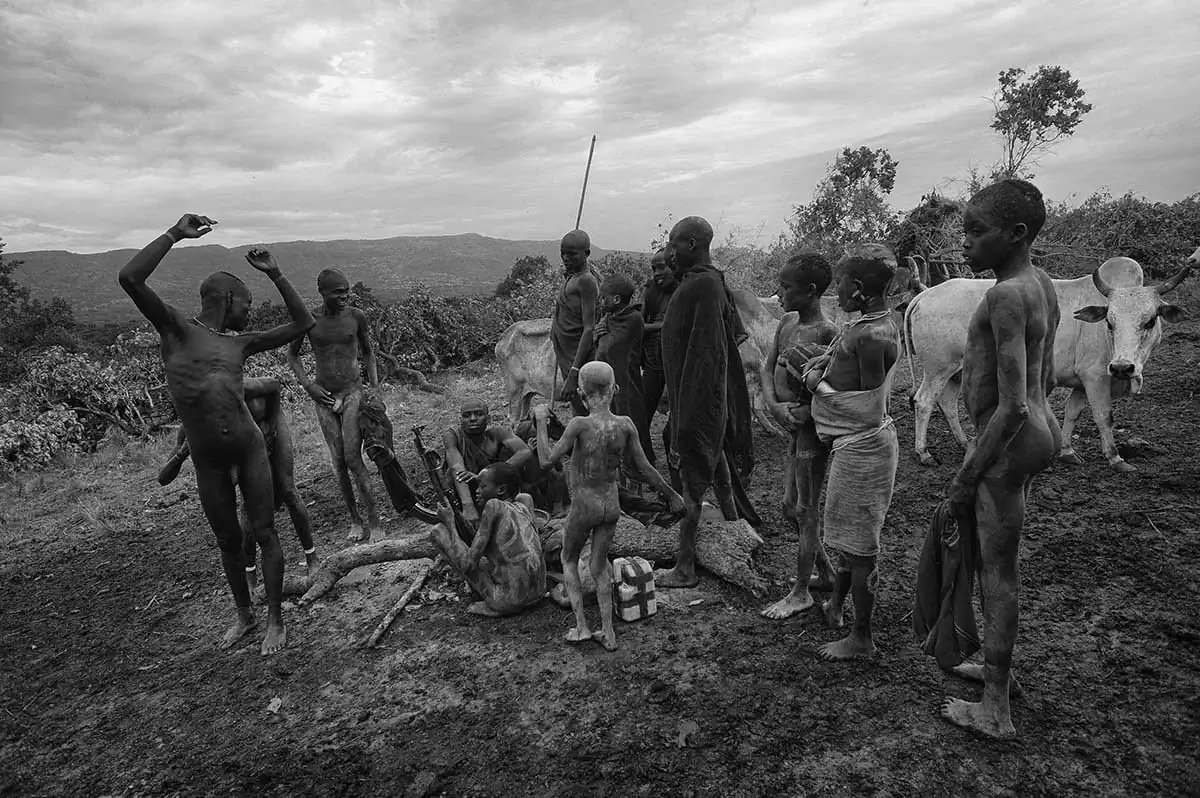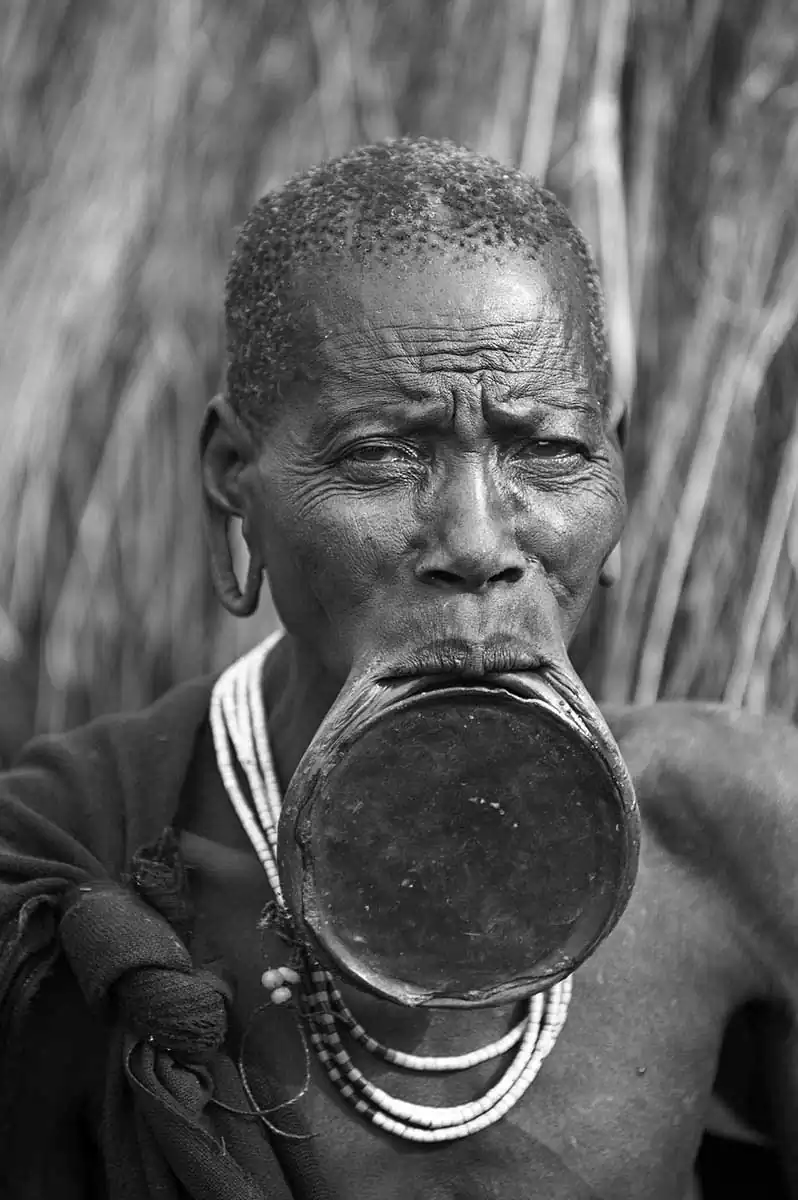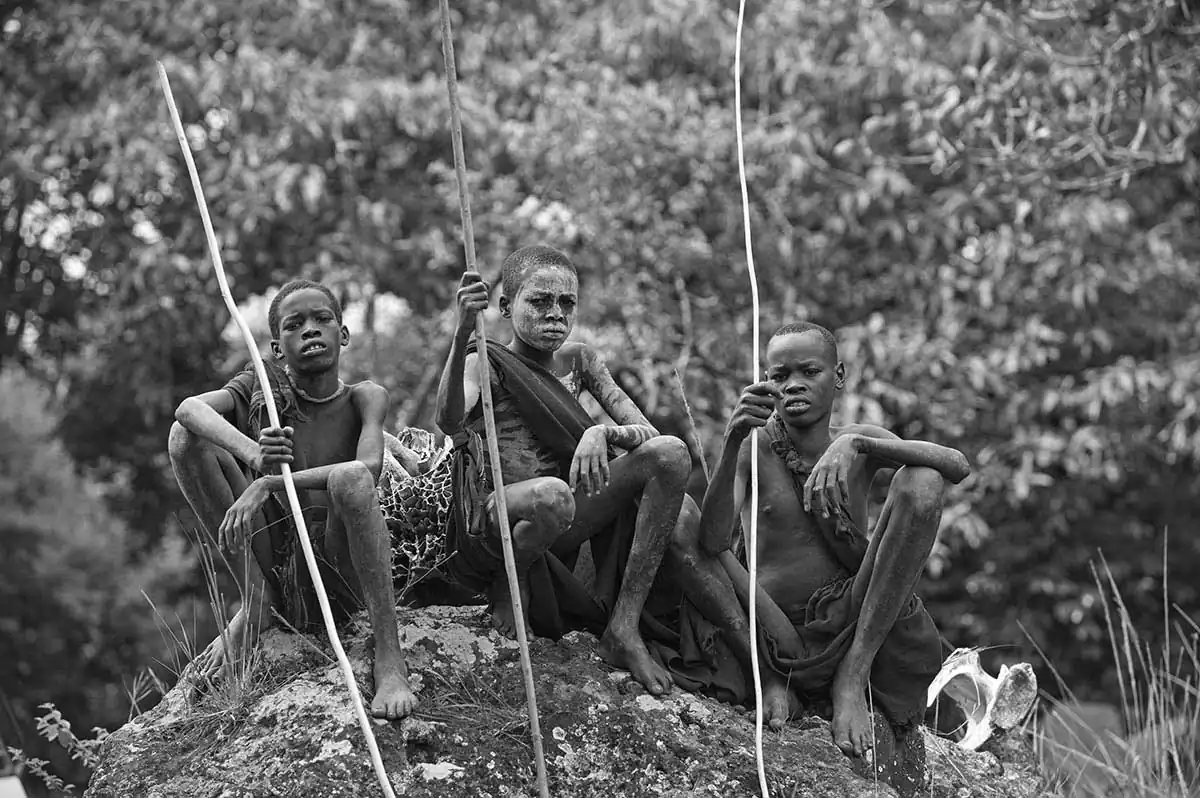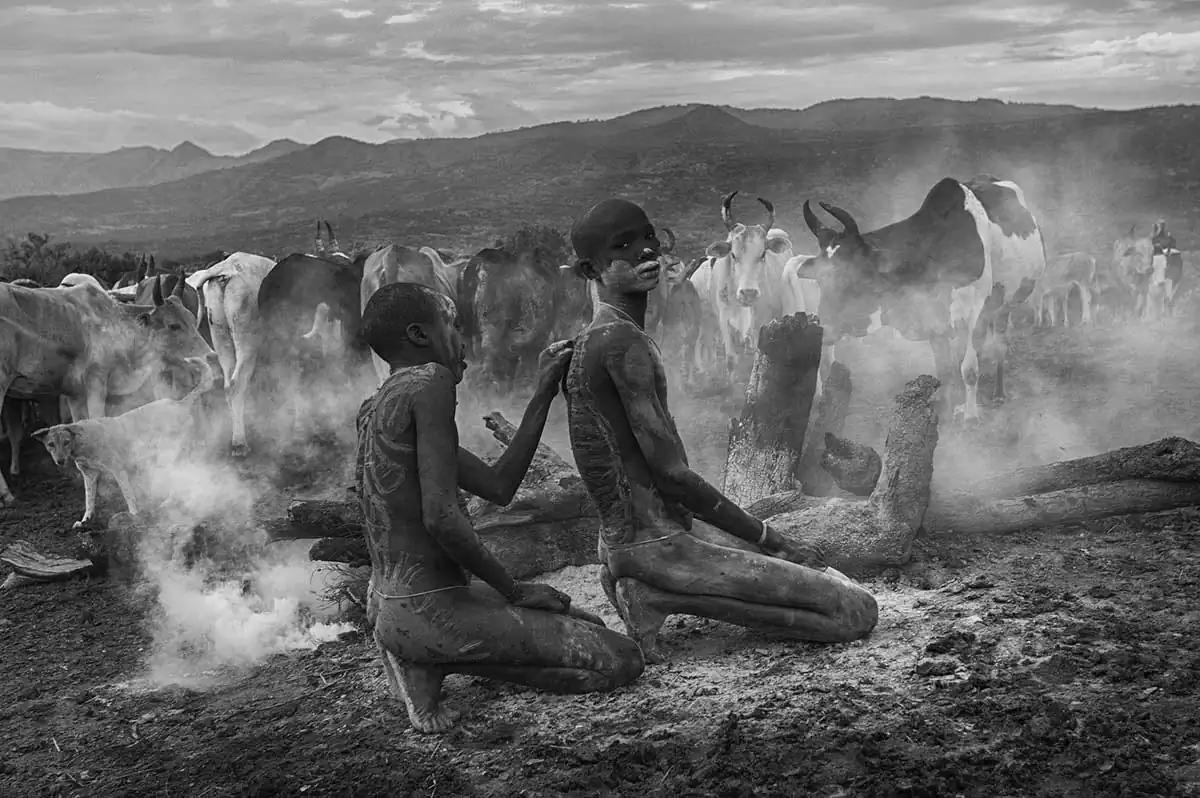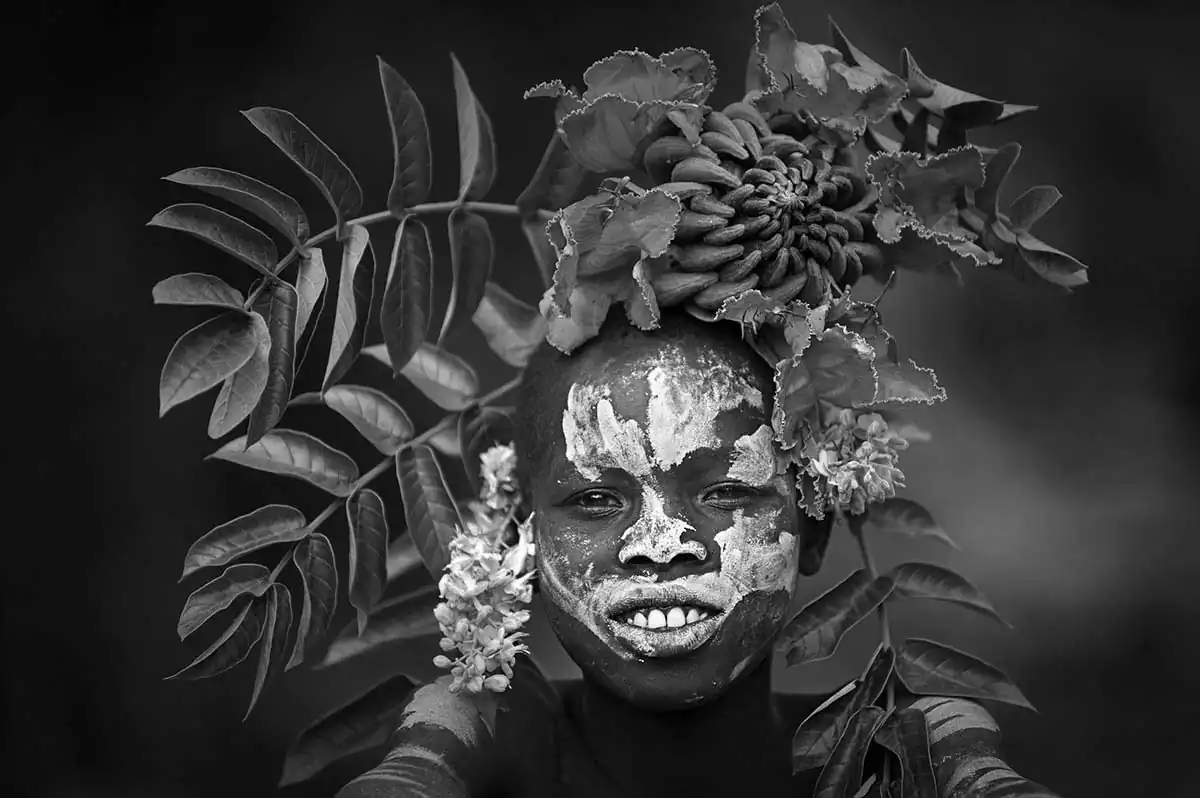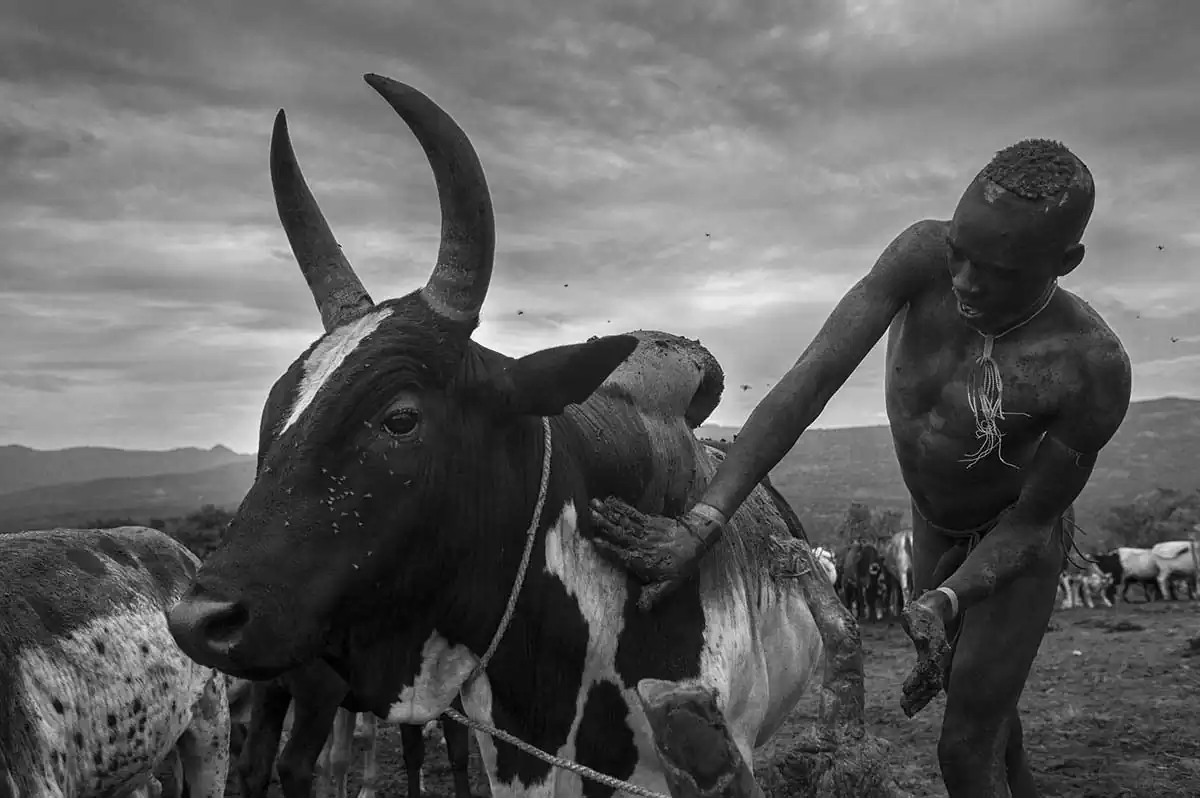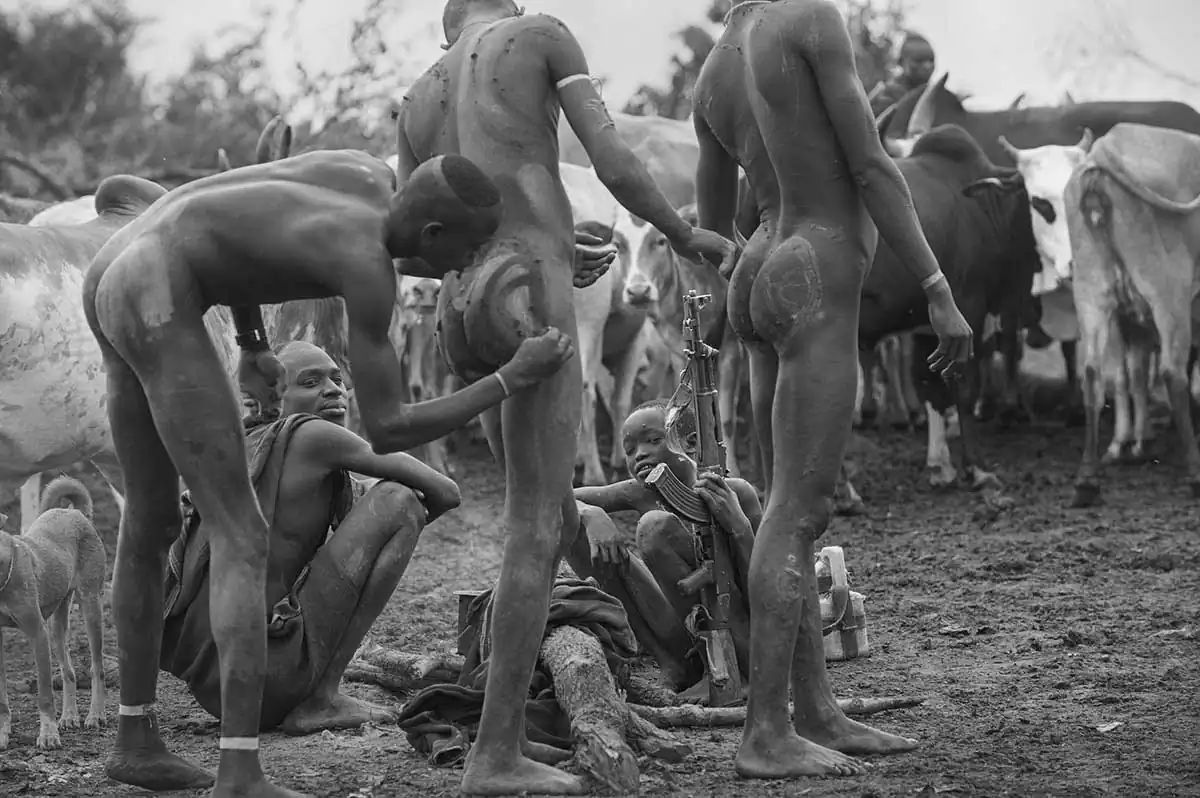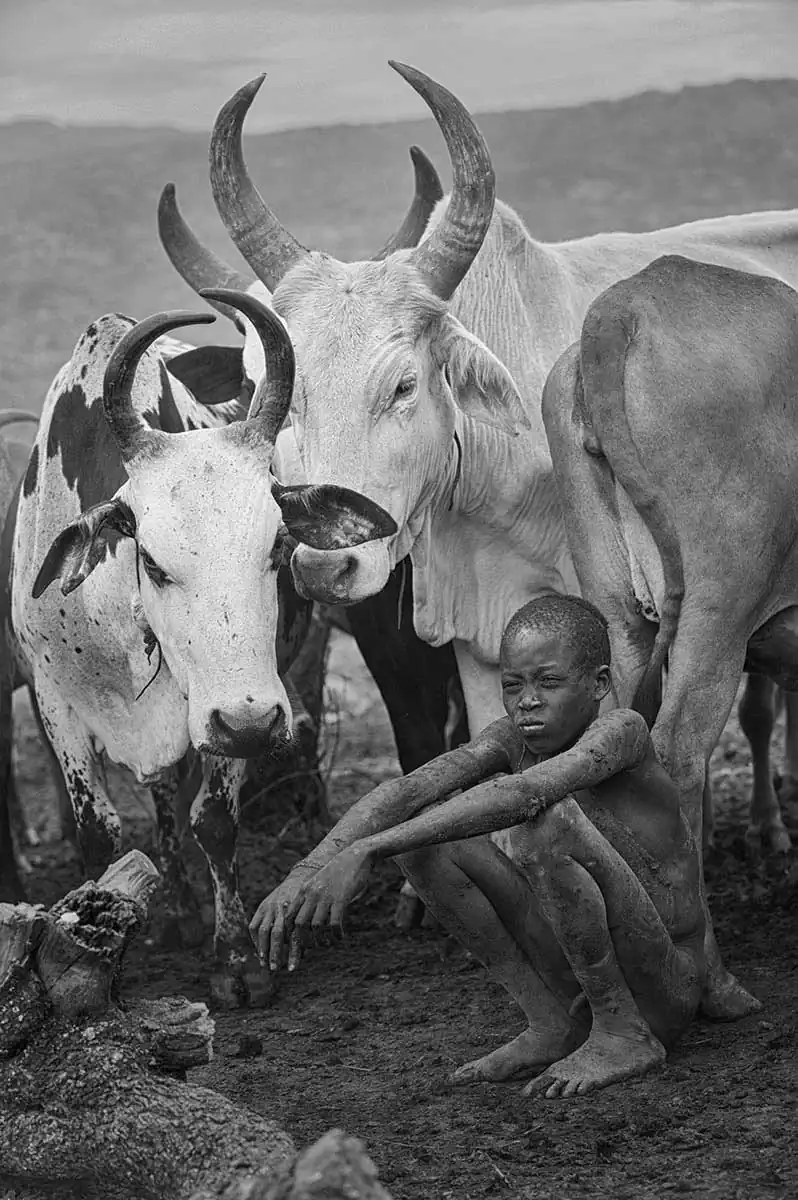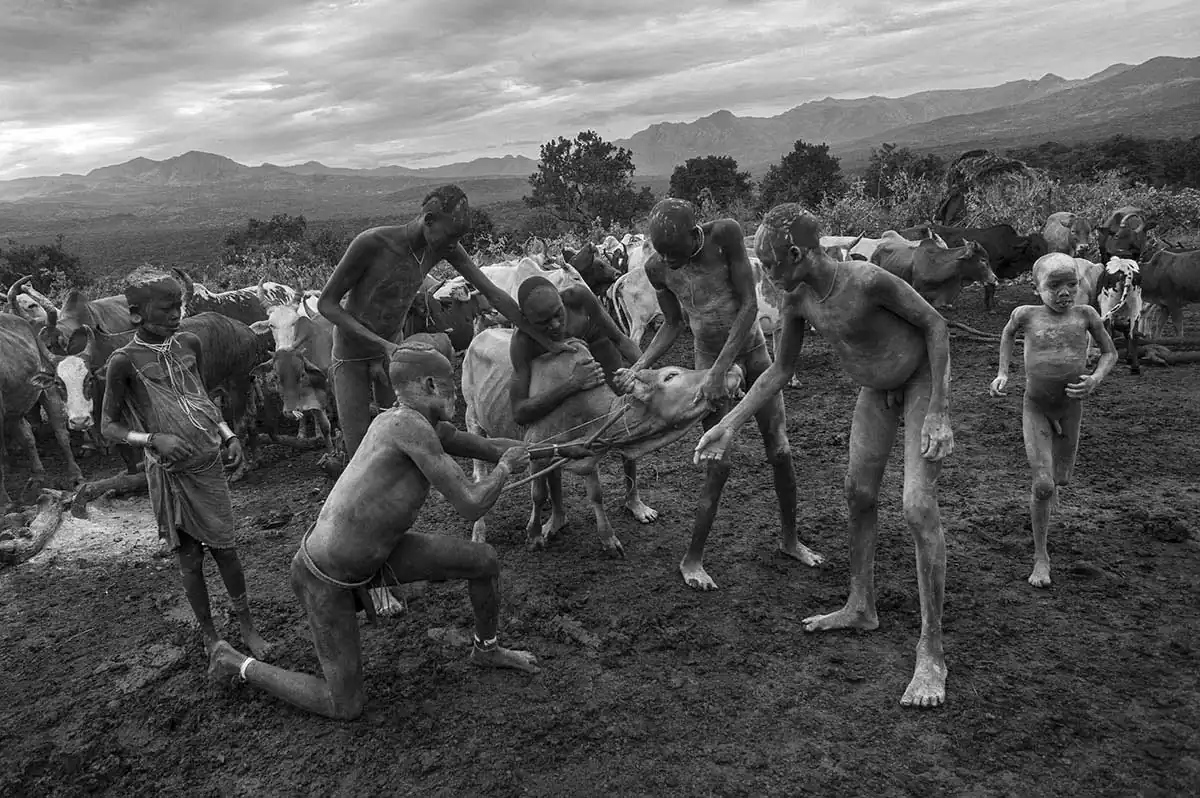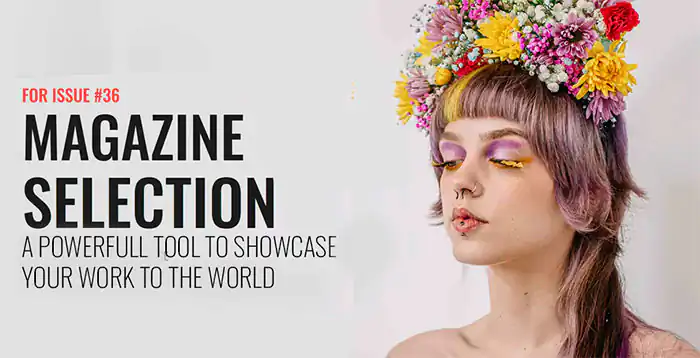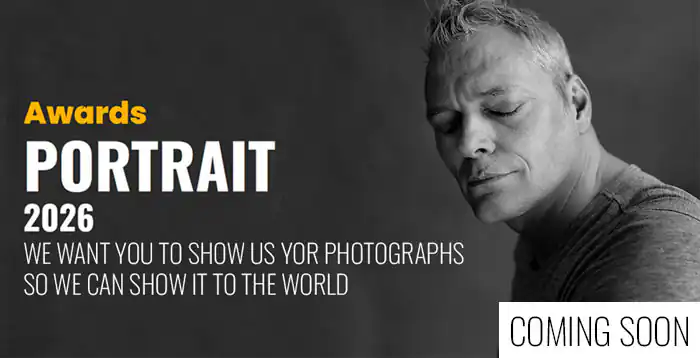Originally known as Surma and a collective name given by the Ethiopian government as Suri.
Approximately with a total population 180,000 inhabit within the south-western region of Ethiopia.
Their homeland is remote, located in desolate mountains, and traditional rivalries with their tribal neighbours such as the Nyangatom become quite bloody as automatic firearms have become available from the parties in the Sudanese Civil War. The police allow foreigners to travel there only with a hired armed guard.
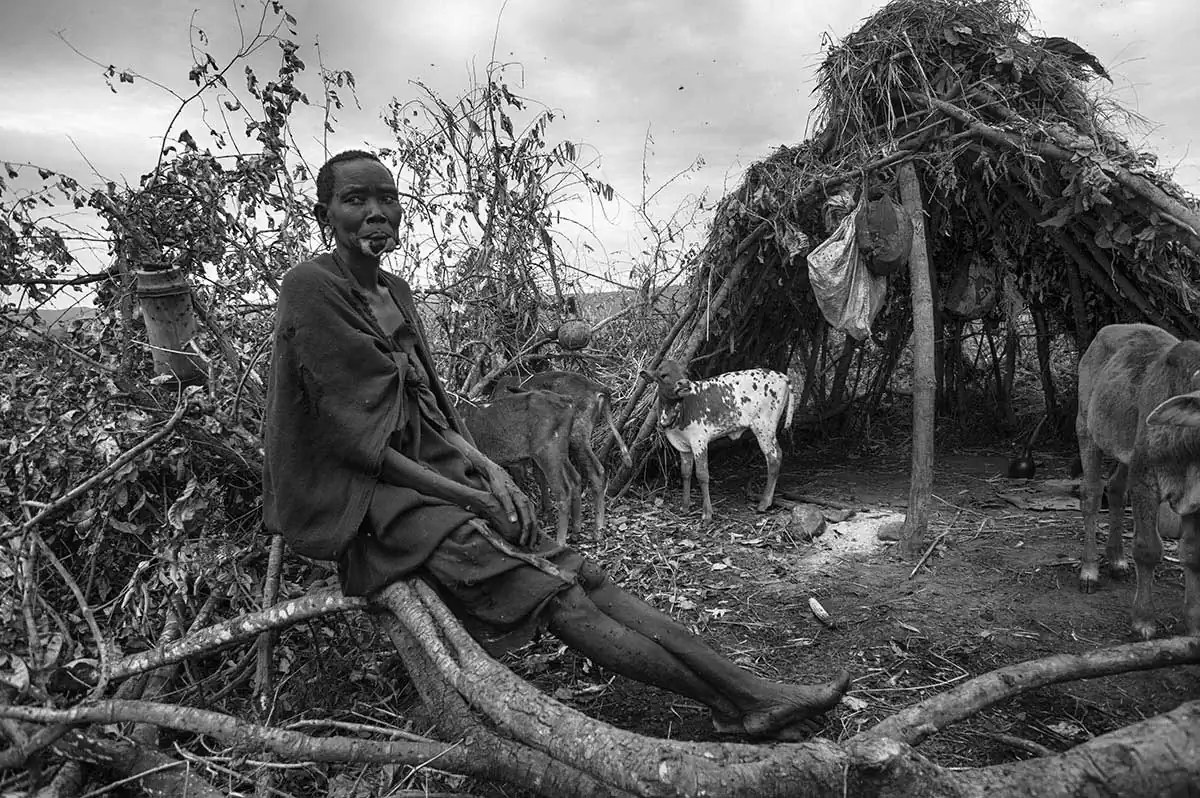
They have a fierce culture called Donga, a stick fighting. This practise is extremely important when seeking a better half, therefore they are very competitive, at the risk of serious injury and even death sometimes.
Women like to beautify themselves by insert a clay lip plate between bottom teeth and bottom lips. However getting more young women are refusing to have their lips pierced. Men have their head shaved and bald. Children are sometimes painted with white clay paint, which may be dotted on the face or body.
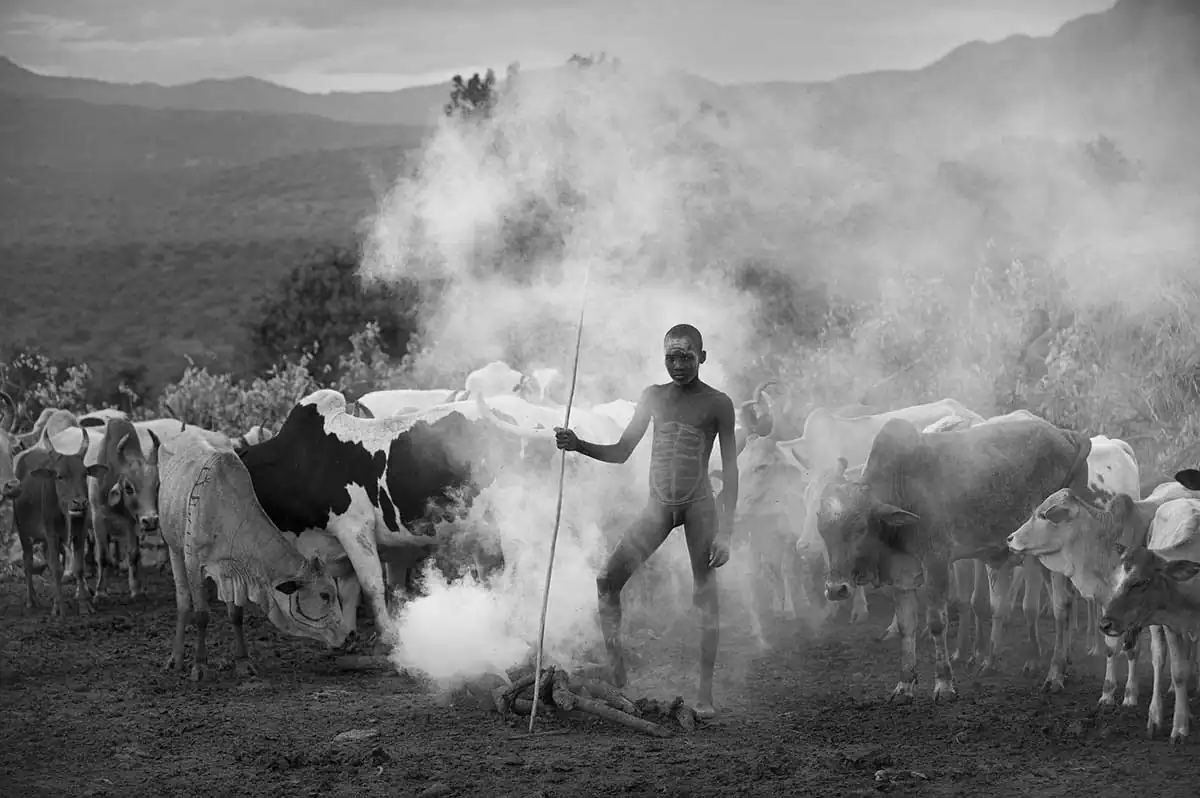
Suri’s village life is largely communal, sharing the produce of cattle milk and blood. They use arrow to punch a small hole on the cattle’s neck to draw blood in the morning and to consume the blood immediately on the spot freshly. Every morning the Suri like to apply the ash and even body painting with fresh cow dung all over their body. They believe this practise may help to chase away flies and stay out of insect bites. Cows are tremendously important to the Suri, and at times Suri risk death to protect their herd, Suri men are judged by how much cattle they own. Suri male owns around 30 cows in average and it is particularly important to the Suri for getting marriage.
